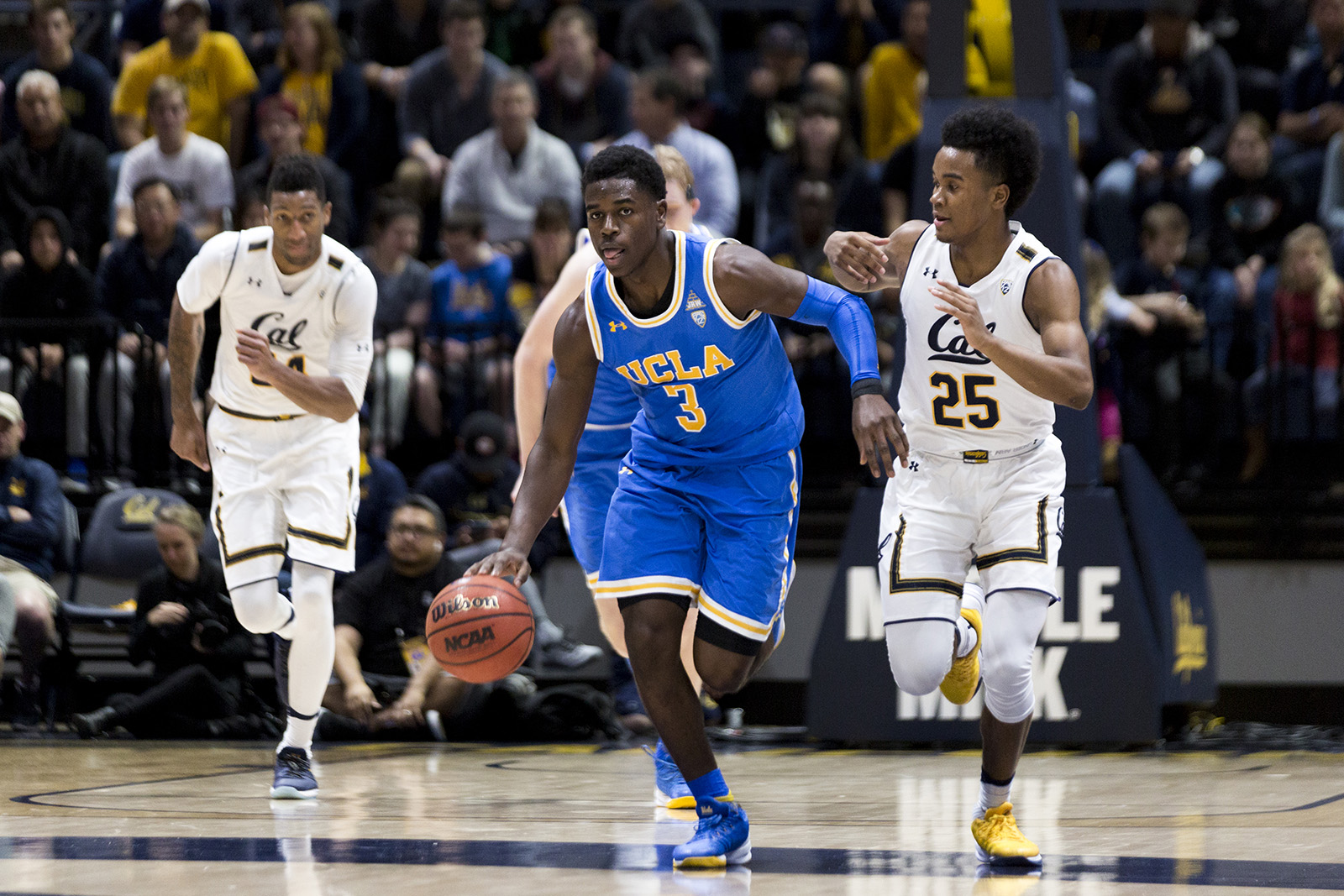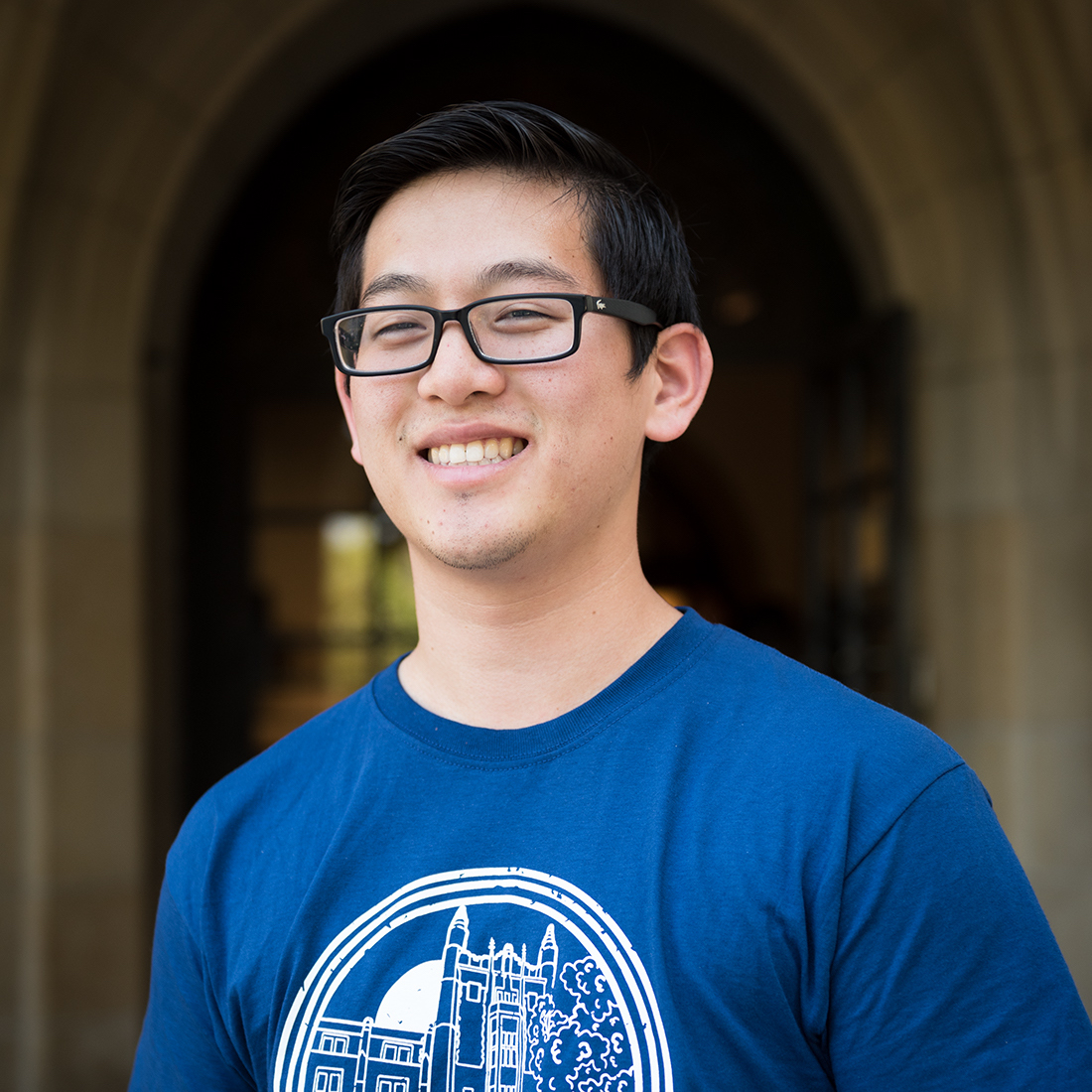UCLA men’s basketball’s losing streak attributed to weak defense

UCLA men’s basketball will welcome California to Pauley Pavilion on Thursday night for the second matchup between the two teams this season. In their first meeting, the Bruins caught fire for a season-high 107 points en route to the 23-point road victory. (Michael Zshornack/Photo editor)

By Hanson Wang
Jan. 24, 2018 11:44 p.m.
Bill Walton called his alma mater’s basketball team soft in the middle of a nationally televised drubbing last weekend.
It was an assessment that UCLA coach Steve Alford agreed with.
“Prior to the Colorado game, we were trending (upward), both in toughness and in what we want to do defensively,” Alford said. “And since the Colorado game, we’ve had three straight games, I think, where toughness and defense has slipped.”
That lack of defensive focus and execution during UCLA’s three-game losing streak will be tested as California (7-13, 1-6 Pac-12) and Stanford (11-10, 5-3) visit Pauley Pavilion this week. The Bears and Cardinal dropped a combined 191 points on 46.3 percent shooting when the Bruins (13-7, 4-4) visited the Bay Area earlier in January.
“Starting with Cal and moving forward, we can’t have slippage. We have got to be better defensively and we’ve got to be tougher-minded,” Alford said. “If those two things don’t happen, the trends are going to stay the same.”
So far, UCLA’s adjusted defensive efficiency – the number of points it allows per 100 possessions, adjusted for how good the opponent’s offense is – is trending higher and higher.
In Alford’s first year in Westwood, his team finished with a defensive efficiency rating of 96.1, which was No. 37 in the country, according to kenpom.com, but that number has ballooned to triple digits in each of the past three seasons.
Alford said his goal for this year’s squad is to stay around the 100 mark at the highest, which would still be outside the top 100 teams.
But the Bruins currently sit at 102.4, No. 138 in the country in adjusted defensive efficiency. Only Cal and Washington State, the two teams tied at the bottom of the conference standings, feature worse adjusted defensive efficiencies in the Pac-12.
“You have to be tough to play defense,” said junior guard Aaron Holiday. “Just have to fight more, get in gaps.”
Holiday is widely regarded as the team’s best defender, and he typically matches up with the opponent’s best perimeter threat. But Holiday also leads the team by a considerable amount in scoring and minutes played per game – 5 points and four minutes more than freshman guard Kris Wilkes and senior center Thomas Welsh, respectively.
That combination means Holiday needs to play with substantial effort on both ends of the court nearly 37 minutes per game, a number Alford conceded he’d like to decrease.
“There’s just an enormous amount of pressure that’s put on him day in and day out,” Alford said. “If we could just give him a two, three minute blow even if he can stay on the court but not have to guard the best player all the time, that helps. … It (comes down to) the other guards continuing to work on their defensive improvements to where we can do some of those things.”
UCLA also continues to employ its 3-2 zone instead of a man-to-man scheme occasionally to mix up its defensive looks, but miscommunication has led to a bevy of open looks from beyond the arc for opposing teams. Colorado, Oregon State and Oregon collectively shot 40.8 percent on 3-pointers, while Cal and Stanford also nearly shot 40 percent combined earlier in January.
“Guys are just not following the rules like we have been,” said redshirt sophomore forward Alex Olesinski. “I think that it’s something we can easily fix because we have been doing it at practice all year.”
The last time the Bruins clashed with the Bears, Alford’s team held its opponent to 25.6 percent shooting in the first half. But in the second half, Cal nearly cut a 20-plus point deficit to single digits while shooting better than 60 percent.
A similar slippage occurred several days earlier in Palo Alto, California, where Stanford overcame a 12-point deficit with less than six minutes left in regulation to win in double overtime.
Any hint of a toughness and defensive resurgence will have to come soon for UCLA, which ESPN’s Joe Lunardi listed among the Next Four Out of the NCAA Tournament. The Bruins’ resume can also ill afford any more losses to teams outside of the top 75 in RPI, raising the sense of urgency surrounding this home stint.
“We’ve lost our last three games,” Holiday said, “and we have to turn it around with three wins.”

